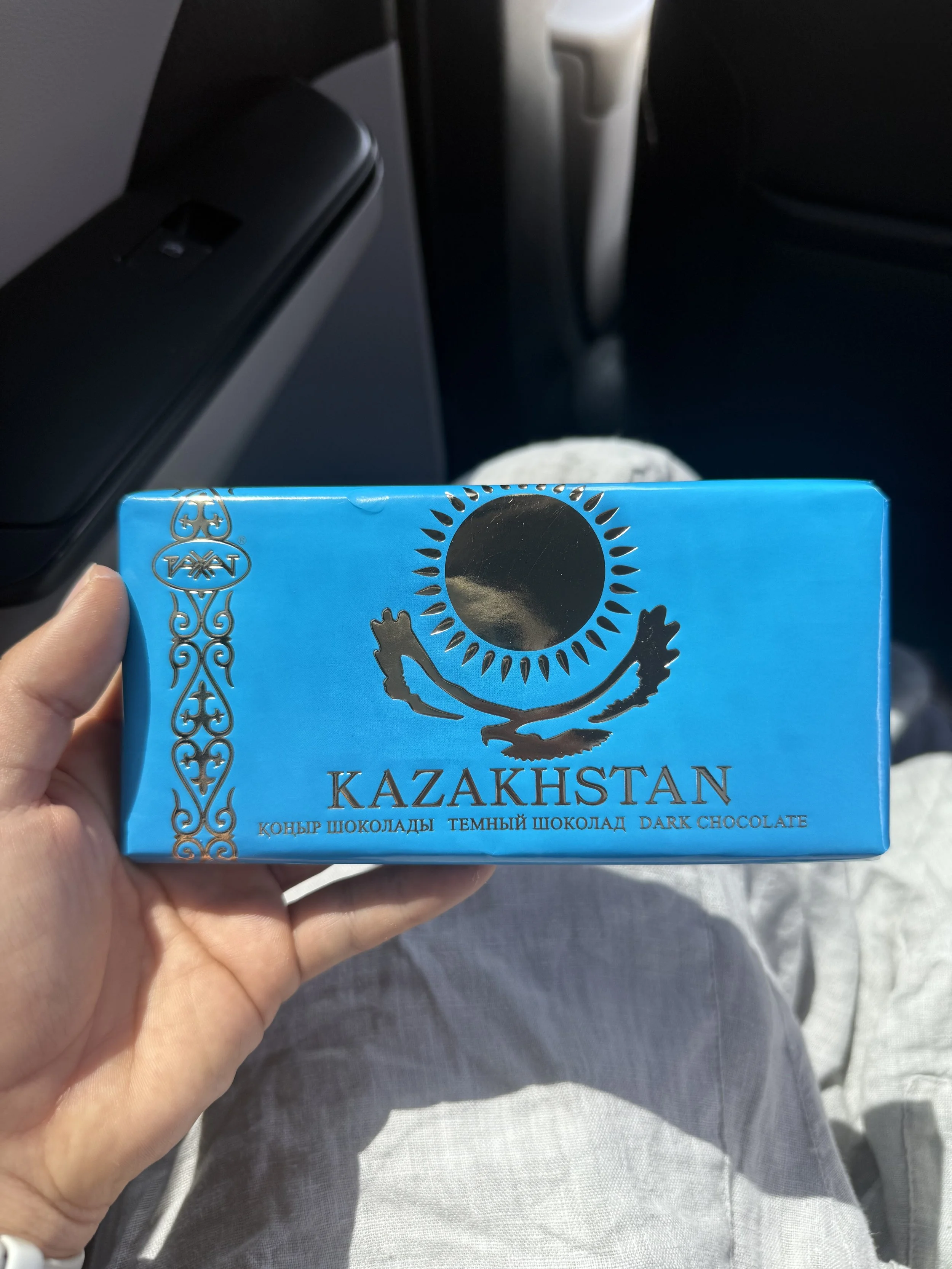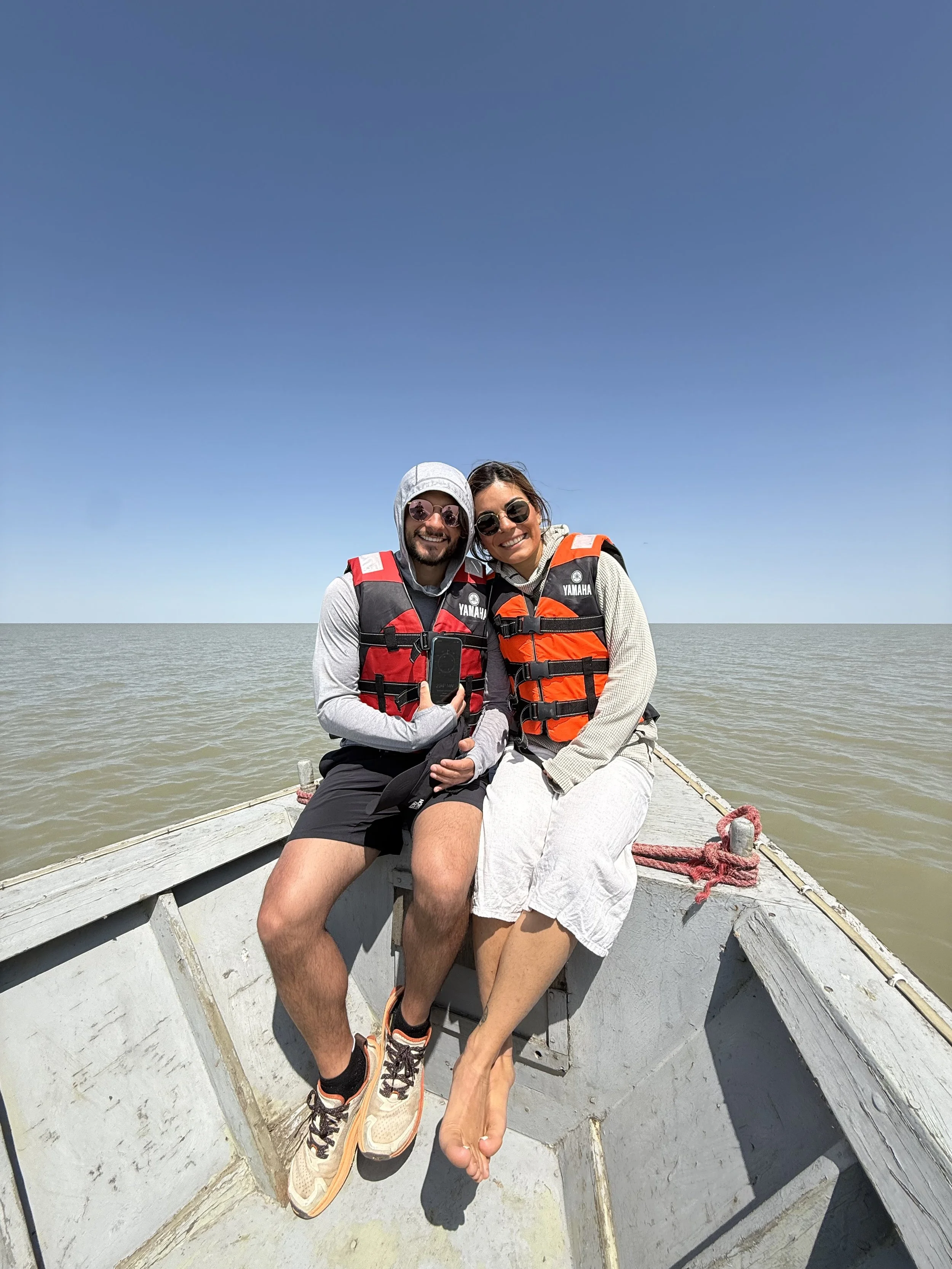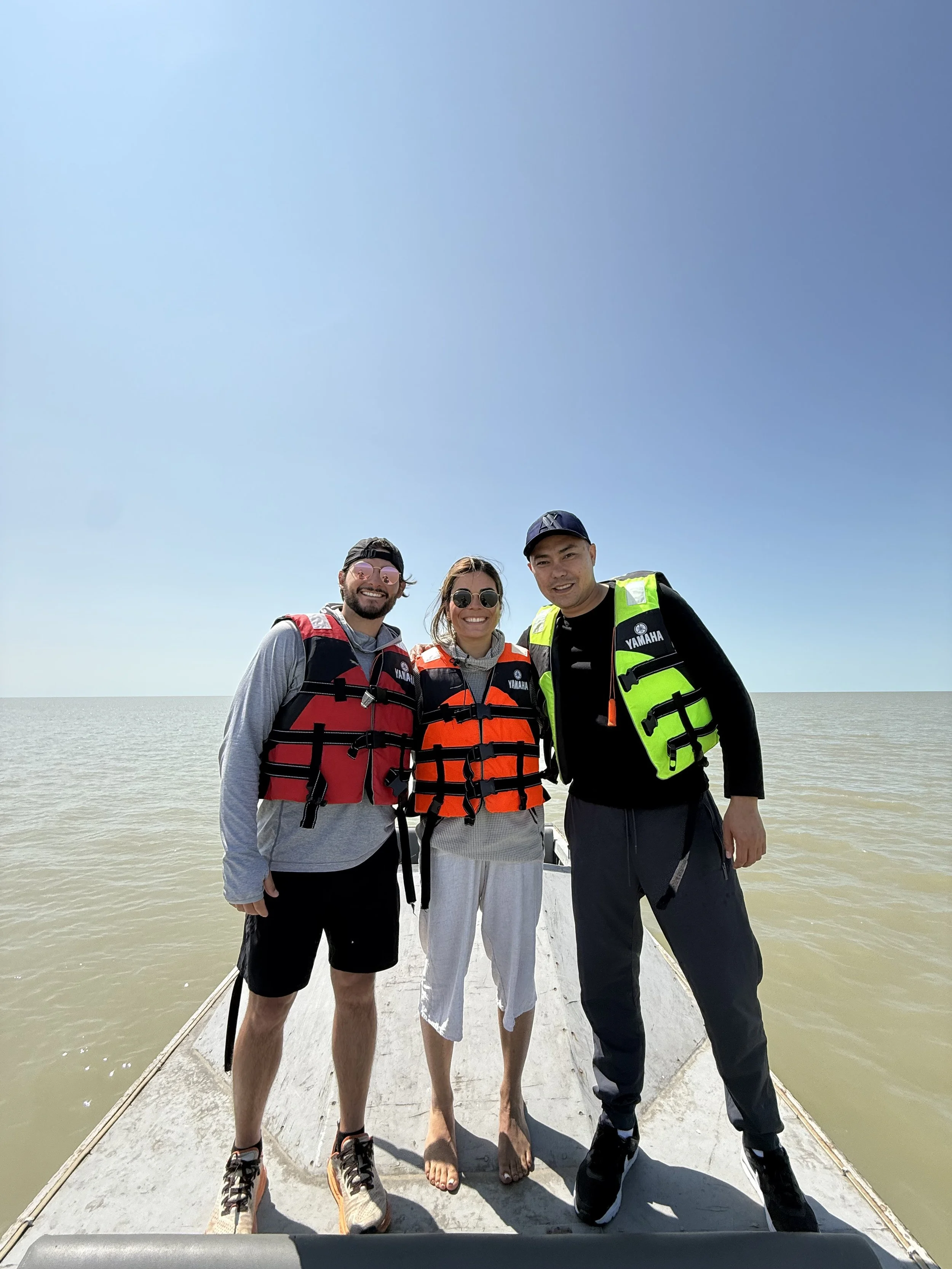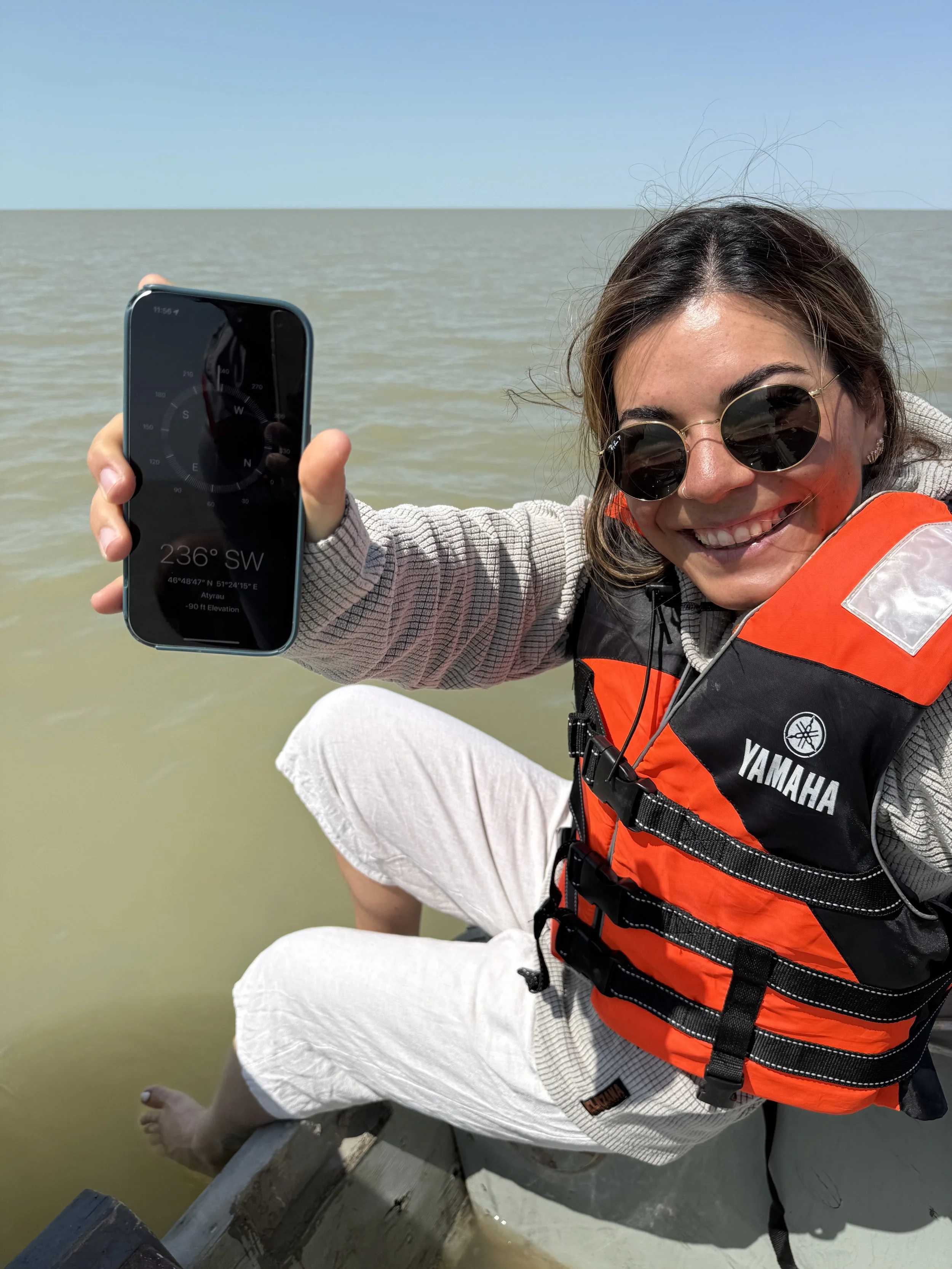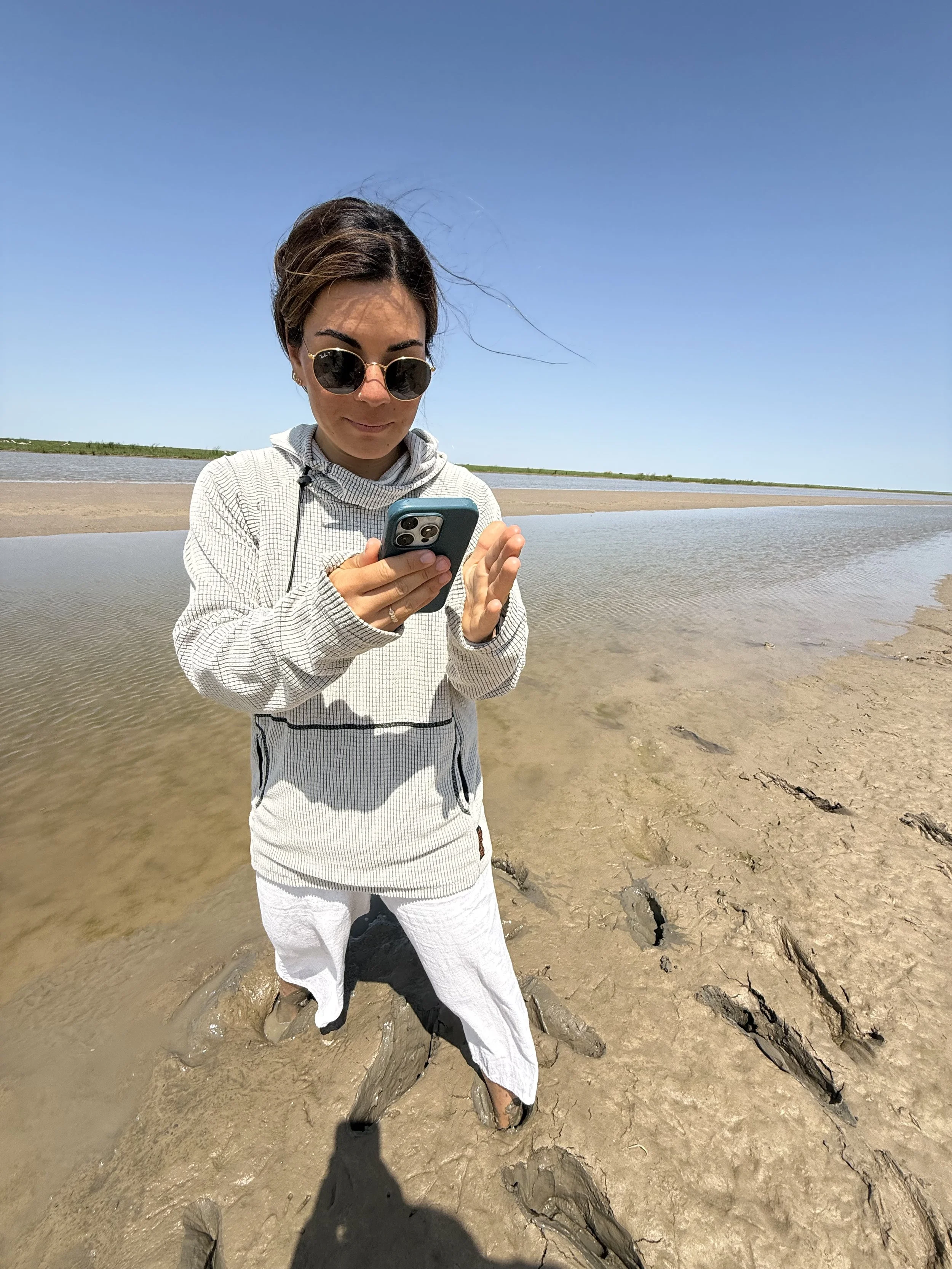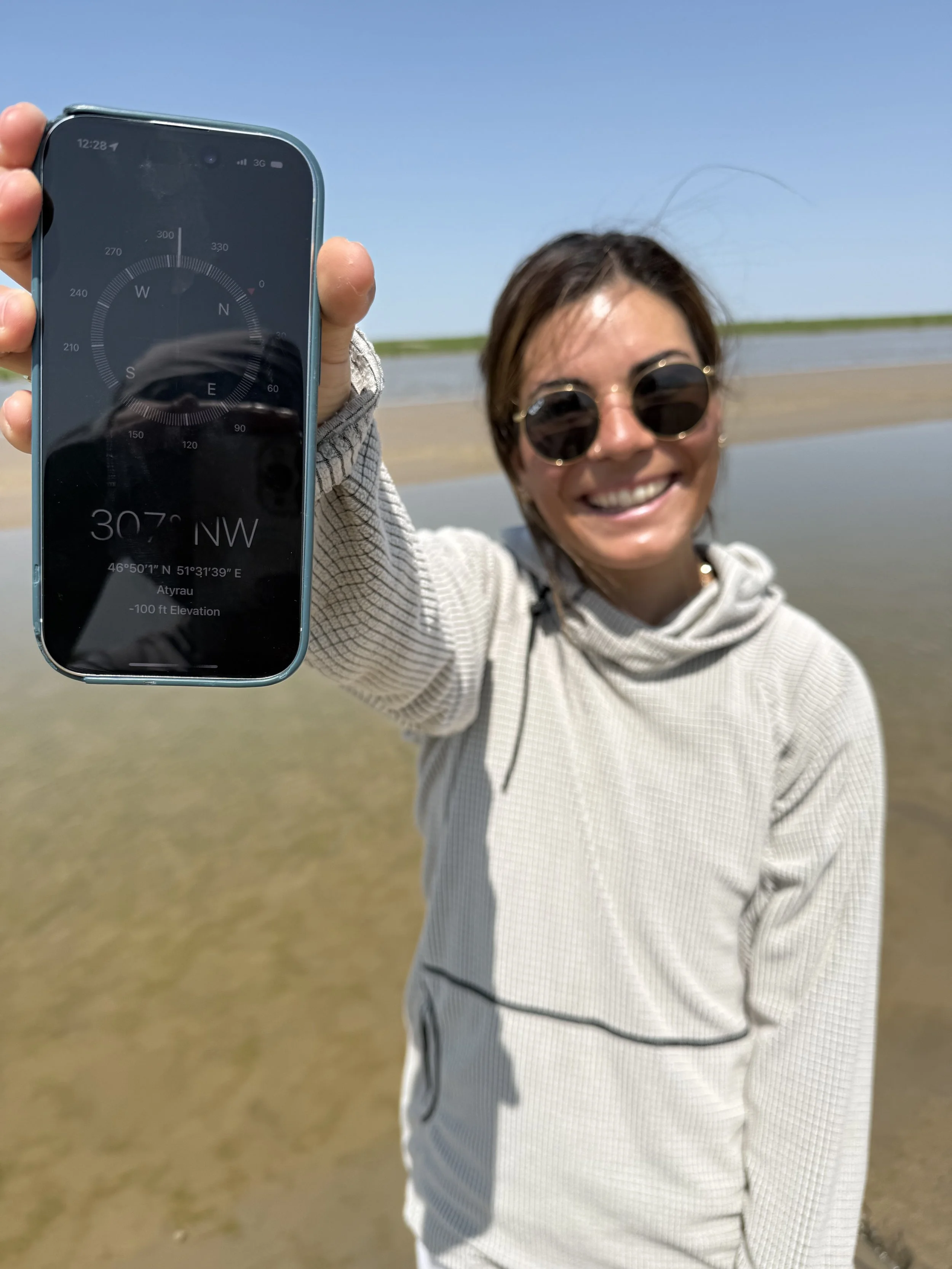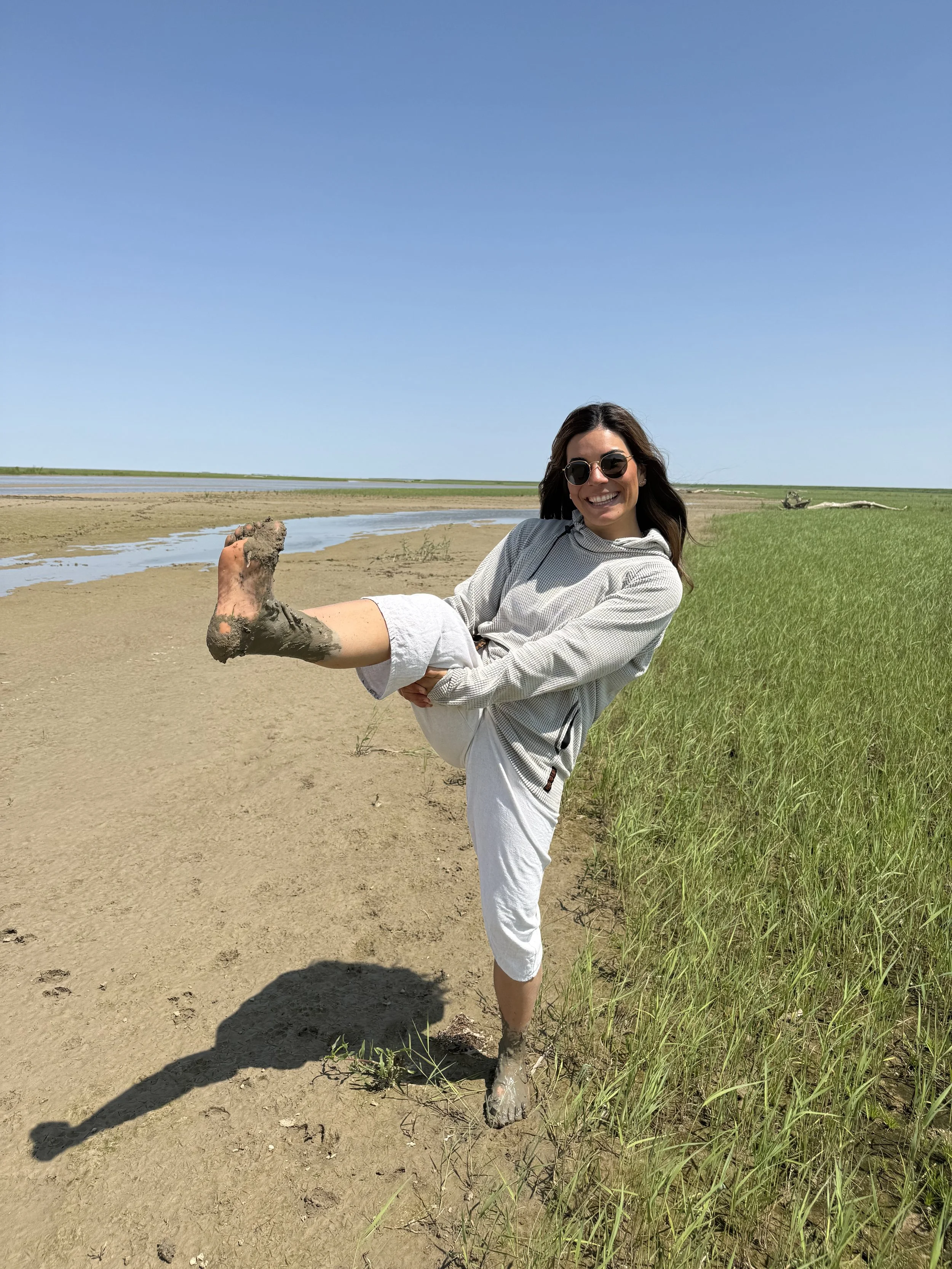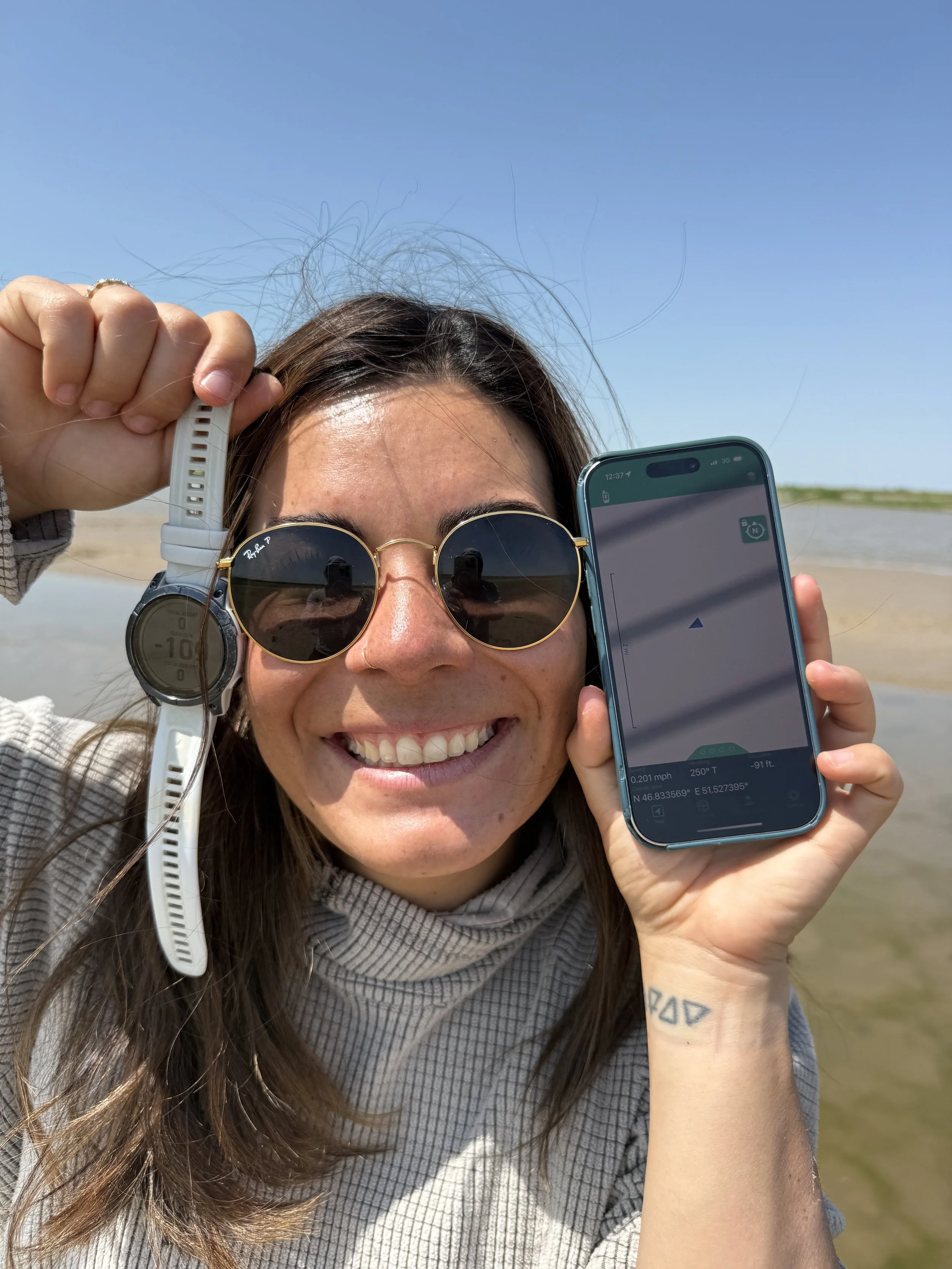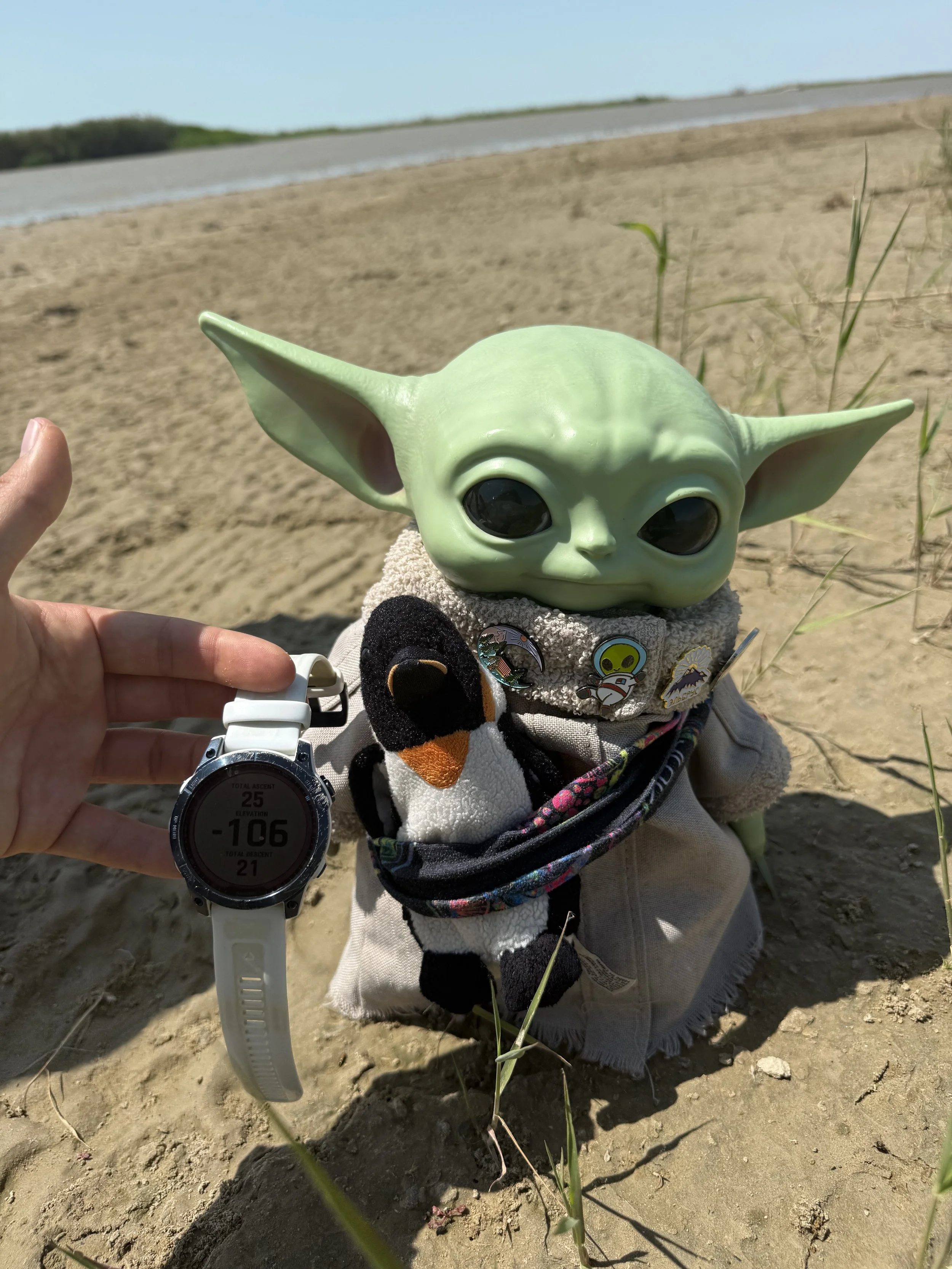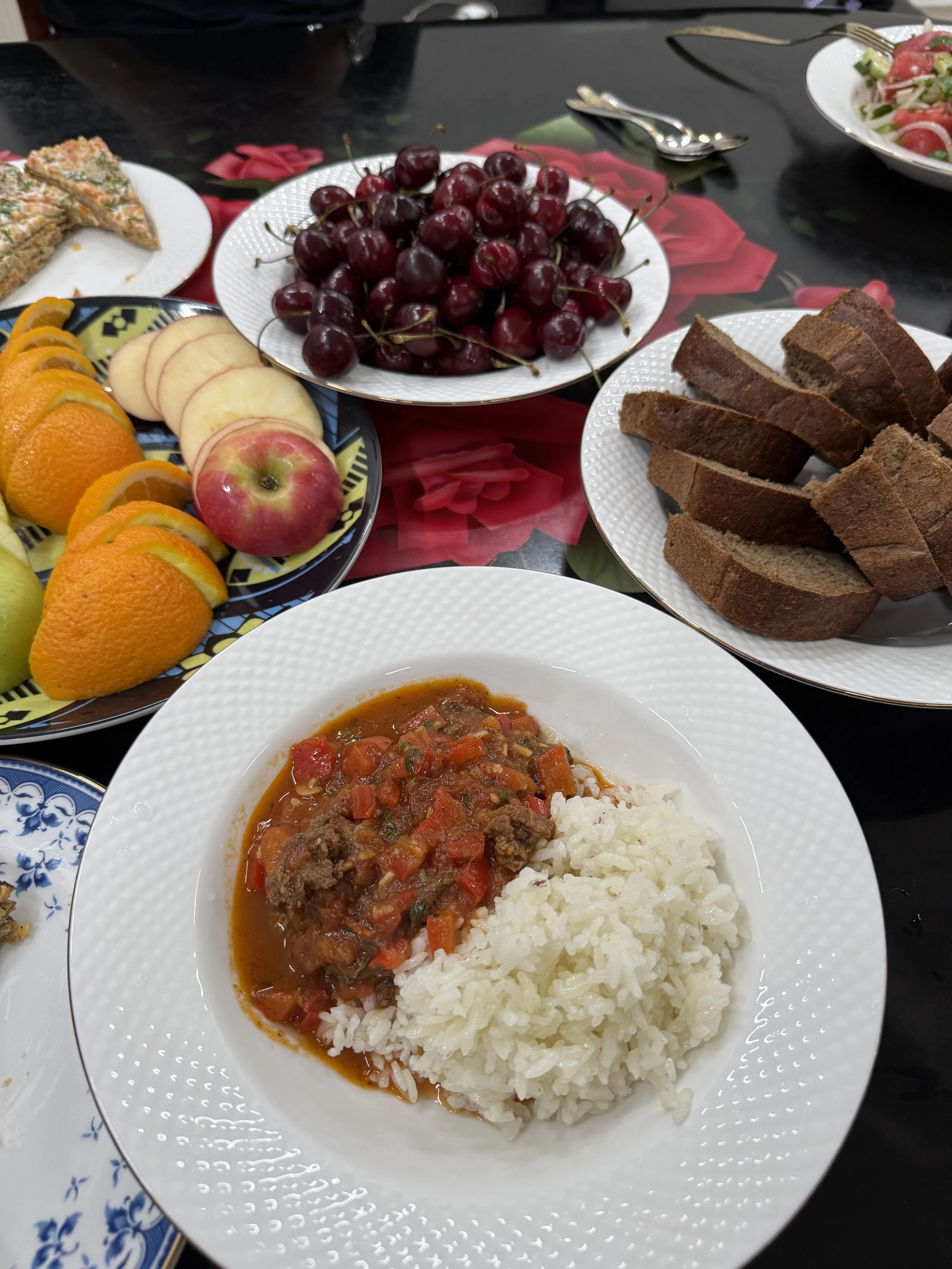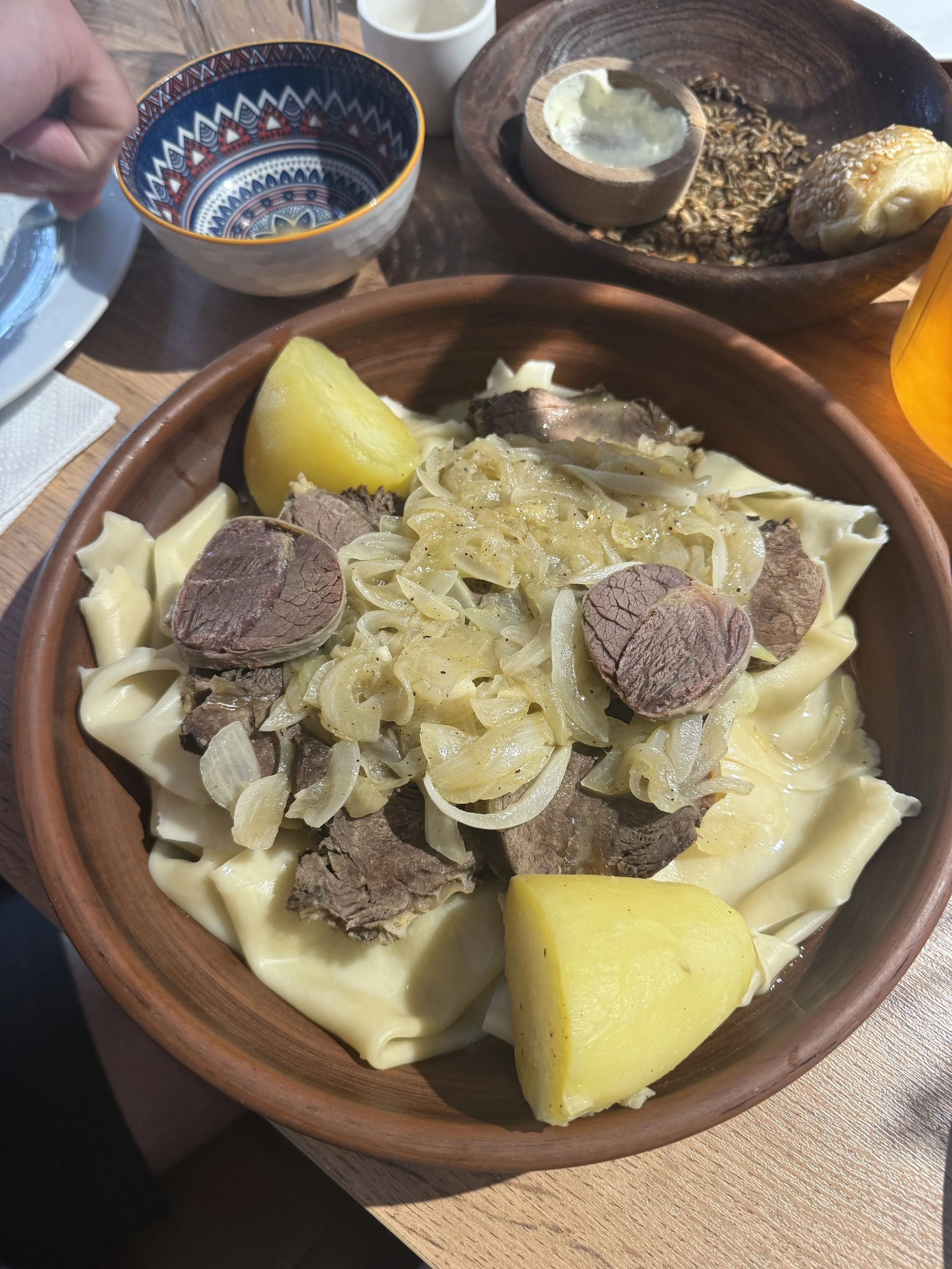Atyrau and the Caspian Depression: The Lowest Point in Europe
After summiting Elbrus in May 2025, our next target wasn’t a mountain — it was a low point. For the Seven Lows challenge, we needed to stand at the lowest land point in Europe.
We were strict about the rules. Europe, defined by geography, ends at the southern edge of the Caucasus Mountains and the eastern edge of the Urals. That eliminated Azerbaijan and left us with only the western tip of Kazakhstan and parts of Russia. Russia was out — there was no way to physically stand on land along its Caspian shoreline. So Kazakhstan it was.
Arrival in Atyrau
Atyrau is a tiny city in western Kazakhstan, perched at the point where the Ural River meets the Caspian Sea. Few tourists ever make it there — and almost no Americans. Tour companies were nonexistent. But I managed to find the WhatsApp number of a kind man who agreed to arrange everything: a boat down the Ural to reach the western bank, and permission to step into the Depression itself.
When we arrived, they greeted us with Kazakhstan’s national chocolate and drove us to our hotel. That evening, they picked us up again for a traditional dinner. Around the table, we listened to a woman who had studied in the U.S. and lived in New Zealand but had returned home. She longed for a bigger, brighter world, a chance to travel again. In Atyrau, few people leave.
She was thrilled to share a meal with strangers who also carried the same hunger — to see the edges of this planet. We walked the west bank of the Ural together afterward, swapping stories under the evening lights, before drifting into karaoke bars with locals who treated us like family.
The Lowest Point in Europe
The next morning, it was time. Our hosts drove us to the river, where a father and son waited with a metal boat. They didn’t speak English, but smiles were enough.
We motored down the Ural, toward the Caspian. They steered us to where the water receded the furthest, and the land below sat at its lowest. We climbed out, wading into the muddy shallows, the water tugging at our legs as we set foot on the west bank. There, at the intersection of river and sea, we touched the lowest land point in Europe.
It was humbling — no summit photo, no sweeping ridge. Just brackish mud, retreating water, and a line of geography that few people in the world ever think about.
A Home-Cooked Surprise
When we returned, the son invited us to dinner at his new apartment. Of course, we said yes — excited to glimpse something authentic.
That night, he arrived with his younger brother and child, who spoke some English, and proudly brought us to his home. He told us about his work with Chevron — $500 a month, a fortune by local standards, yet foreign workers earned ten times as much plus housing. The inequality was stark. Still, he was proud to share the apartment he had just secured for his family, even though the only furniture was a table and a couch. His wife, children, parents, and sister all crowded in to meet us.
They asked us questions about American politics and culture, and in return, we were treated to one of the most delicious home-cooked meals I’ve ever had. And then, the moment I’ll never forget: they stood us up and dressed us in traditional Kazakh clothing. Tears filled my eyes.
We had booked a boat ride. Instead, we were given chocolate at the airport, treated to a night of traditional food and music, guided to the lowest point in Europe, welcomed into a family’s home, and dressed in their national attire.
Reflection
The Caspian Depression isn’t just a dot on a map — it’s a place shaped by both climate and inequality. The Caspian Sea has been retreating for decades, its shoreline shrinking year after year. Scientists warn that in another century, much of it could vanish. What was once the heart of trade and biodiversity may collapse under the weight of rising temperatures and human mismanagement.
At the same time, the families of Atyrau live with a different imbalance: local workers making a fraction of what foreign contractors earn for the same labor. It’s another reminder of how global systems extract from places like this, just as the sea itself recedes.
And yet — despite all of this — the Kazakh people we met showed nothing but kindness, pride, and generosity. They gave us chocolate, music, home-cooked food, and even the clothes off their backs.
The lowest point in Europe taught me something profound: even in places marked by loss — of water, of fairness, of opportunity — you can still find abundance. Abundance of heart, of community, of human connection.
The geography drew me there. The people made me want to return.


